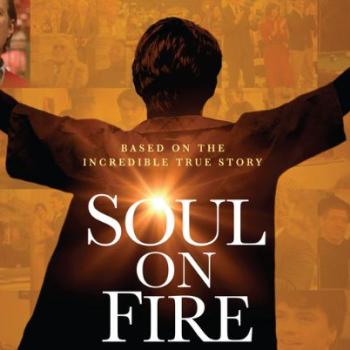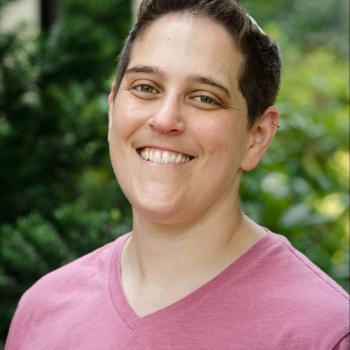She reports that the young Mormons didn't deliver a message from God after all. Instead they asked her a question. Did she believe with all her heart that God loves her? That question really brought her up short. If they had asked her if she felt God's love, she says, she would have been perfectly fine. But they wanted to know if she believed it. And the more she thought about it, the less sure she was. So began an odyssey that started with the Bible (too contradictory, too morally cruel), moved on to psychology (Karen Armstrong, Joseph Campbell), rested in a careful reading of all the scriptures of the world's religions before continuing on to Buddhism (an option refuted by a pilgrimage to Bhutan and Thailand), before finally arriving at the doors of scientific research.
Once she begins exploring the joys of science, there's still a lot of chaff to be sorted and scattered. Intelligent design gets its fair hearing, as does the quantum spirituality of Deepak Chopra. But when she studies the scientific foundations of these approaches, she discovers they depend on spurious, easily discredited scientific claims.
Finally, even Sweeney's most reliable resource, her profoundly deep experiences of God's loving presence, falls under the knife of Stephen Pinker's How the Mind Works. It turns out neuroscientists can stimulate the right frontal lobe with a machine, and cause those overwhelming religious experiences. One day, at last, she is forced to confront a proposition that she never seemed to see coming. Maybe there is no God.
And once that cat was out of the bag, there was no coaxing it back in. Sweeney's initially frantic, and ultimately peaceful reactions to this personal 9.0 earthquake are riveting (while her parents' reactions provide plenty of comic relief). She had spent her life in a very happy and loving relationship with God. Breaking up really was very hard to do. Sweeney's reflections on the meaning of existence without God are moving and provocative, and the questions she weighs demand the sustained attention of all thinking people.
Like Sweeney, I had a bout with cancer. I know I'll die, not as some obvious fact, but as a revelation with some urgency attached. It's as though I know that I'm living with one foot in the grave. And even if I live another 40 years, well, that's just not much time. Armed with this understanding, I remain contentedly Christian even while drawing very similar conclusions about life as Sweeney does. I regard life with wonder, joy, and even awe. Each moment is alive and vibrant, and filled with bliss for those who look.
As Sweeney makes so beautifully relevant and clear, there is such delight in existence. There is something instead of nothing. Whether we embrace the cosmos in love and wonder with God, or without God, we embrace it. And if you seek the meaning of life, try it. I think it's all you need.
Beth Davies-Stofka teaches courses on comparative religion and the philosophy of religion. She has also been an online columnist and critic and contributes regularly to the Patheos site.





